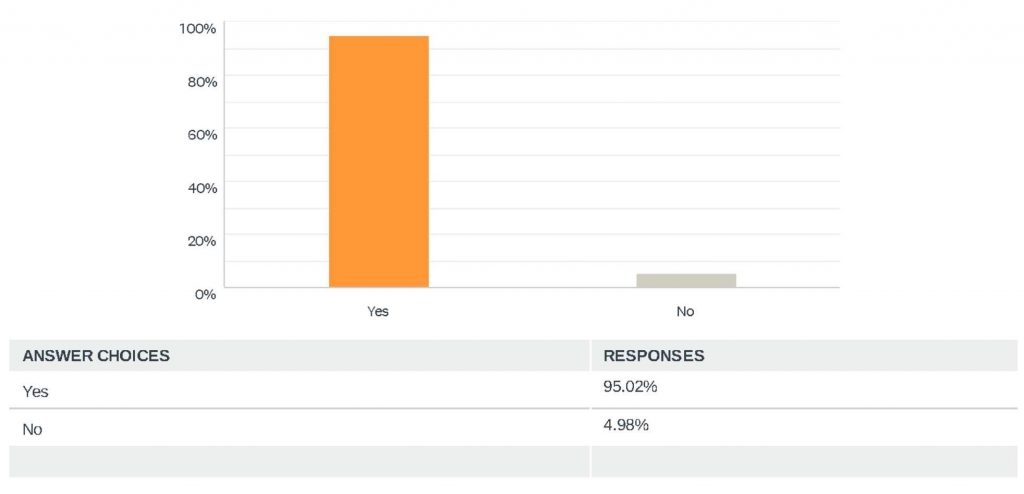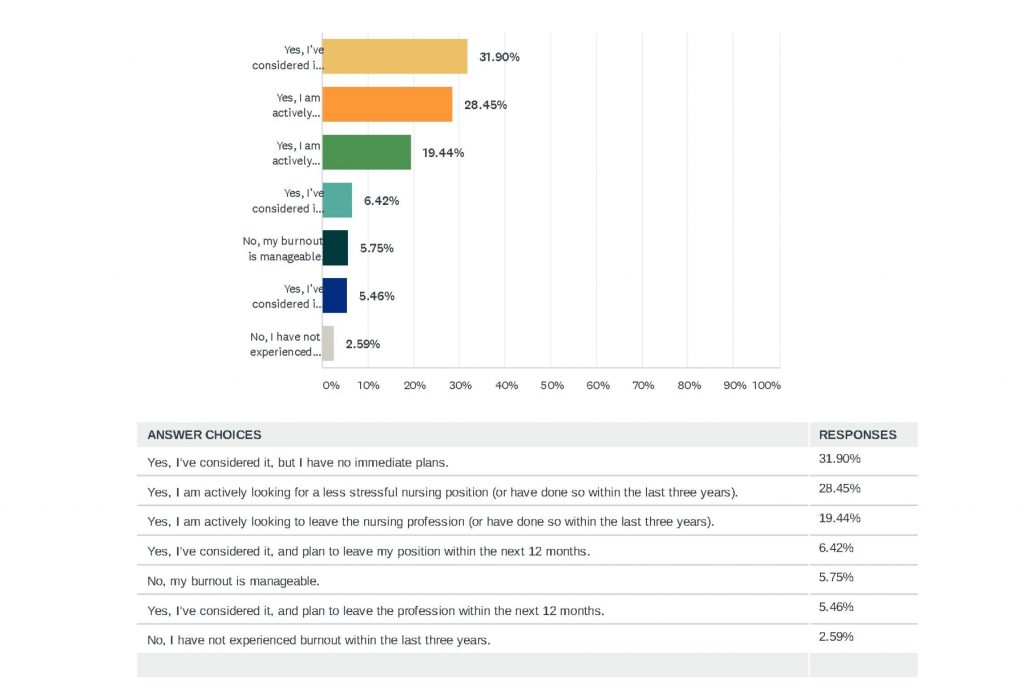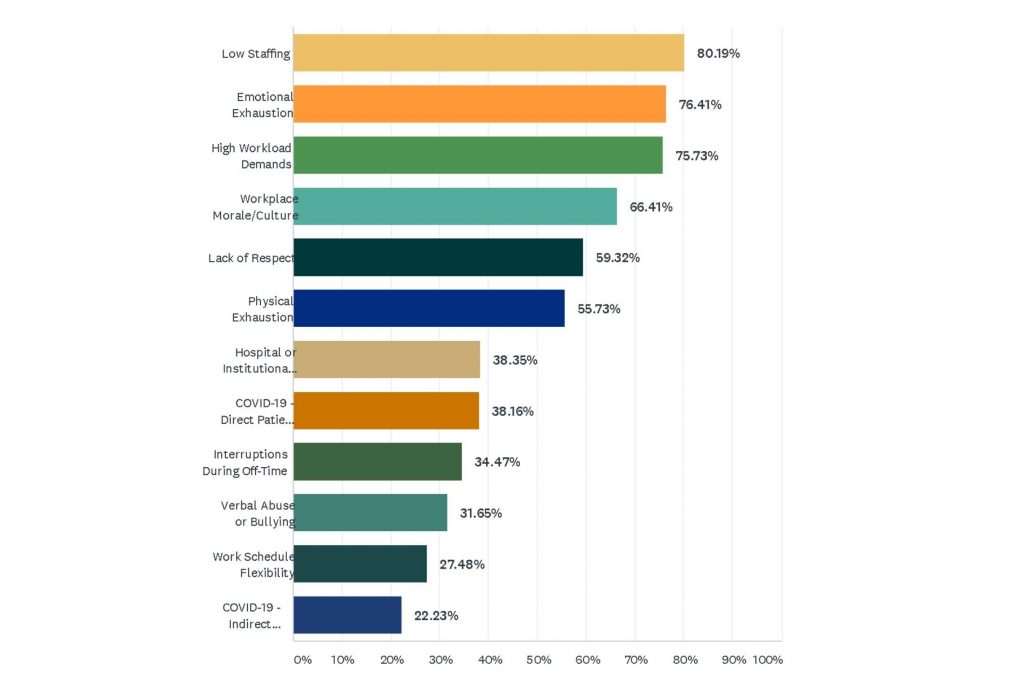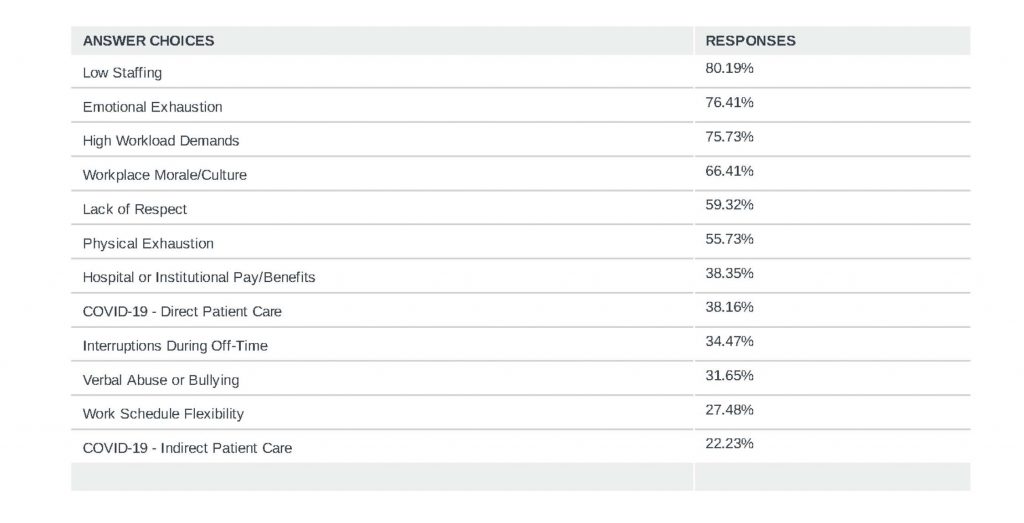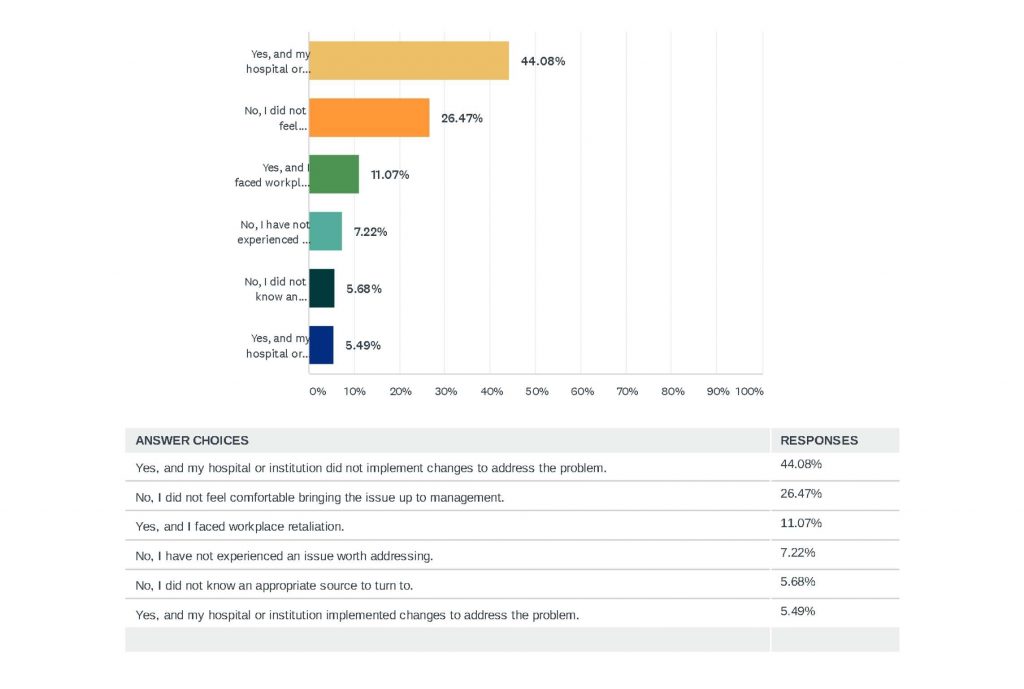For Media
LEXINGTON, Ky. (Aug. 6, 2021) – As hospitals across the country struggle to keep up with another influx of COVID-19 patients, results from a July 2021 study, conducted by Kentucky based nursing education company Nursing CE Central, warn that high nursing pay incentives may not be enough to keep hospitals staffed through another wave of COVID-19 infections.
Of the thousands of nurse participants from across the country, a staggering 95% reported feeling burnt-out in their nursing position within the last three years, with 47.9% reporting that they are actively looking for a less stressful nursing position, to leave the nursing profession all together, or have done so within the last three years due to burnout.
Eastern-Kentucky native and Nursing CE Central founder Shane Slone explains that while the COVID-19 pandemic is directly fueling the national nursing burnout and shortage crisis, its indirect effects may be taking an even heavier toll. “As an ICU nurse practitioner, I can tell you that critical care nurses are no stranger to high-octane environments and heartbreaking losses. However, when you add the strain of all these other factors, it has created the perfect storm for burnout…which poses a very real threat to being able to keep hospitals running at safe staffing capacities.”
When asked about what exactly is contributing to their burnout, more than 80% of nurses reporting burnout pointed to Low Staffing as a factor, 76% cited Emotional Exhaustion, and 75% noted High Workload Demands, while only 38% included COVID-19 Direct Patient Care as a reason they are burnt-out.
“The nursing shortage was already wreaking havoc on staffing ratios across the country before this new wave of Delta-variant infections, but nurses are leaving the profession faster than new nurses are entering it. This means there are patients right now who can’t be cared for, or cared for as well as they should be, due to the nursing burnout and shortage crisis,” says Slone, “and our data shows it’s only going to get worse.”
“I worked in the private, clinical setting here in Lexington throughout the pandemic, and it was a struggle keeping our office fully staffed with nurses,” explains former clinical and surgical nurse manager and Nursing CE Central’s Education Director Morgan Curry. “However, most of our nurses ended up leaving due to high work demands and low staffing ratios…not direct COVID-related burnout.”
Slone says many nurses are pushing to find remedies themselves to the burnout crisis, but healthcare administrators can’t, won’t, or don’t know how to address the core problems fueling nursing burnout, and subsequently the national nursing shortage. “It really is a cycle that fuels itself. Nurses burn-out, which often causes low staffing ratios that add increased work demands on remaining nurses. Those nurses then experience emotional exhaustion, which causes more nurses to leave their position or the profession, and so on,” Slone explains.
About Nursing CE Central
Located in the heart of downtown Lexington, Kentucky, Nursing CE Central is an American Nurses Credentialing Center (ANCC) accredited and approved provider of online continuing education for nursing and healthcare professionals. Founded in 2019 by Critical Care Nurse Practitioner Shane Slone, Nursing CE Central’s mission is to make life easier for nurses by providing high quality and clinically-relevant continuing education.
Nursing CE Central’s extensive team of nursing authors live and work at hospitals and clinics in major cities across the country, covering all regions and representing more than 20 states. Stemming from prestigious institutions and organizations such as the American Nurses Association, the Mayo Clinic, Mount Sinai hospitals and more, Nursing CE Central authors deliver top industry knowledge and experience in 50+ healthcare specialties.
Interested in a story? Let us know!
[email protected]





